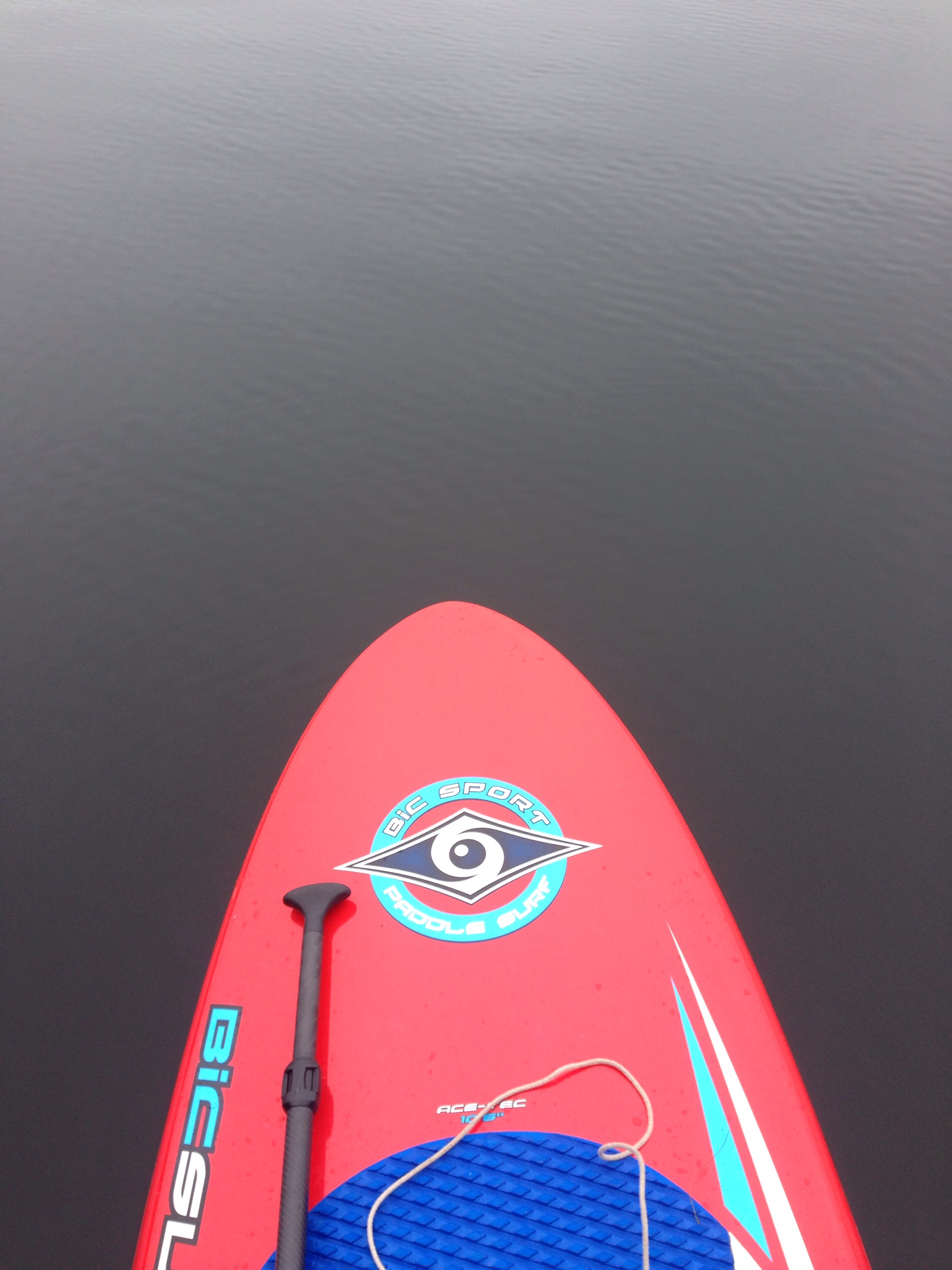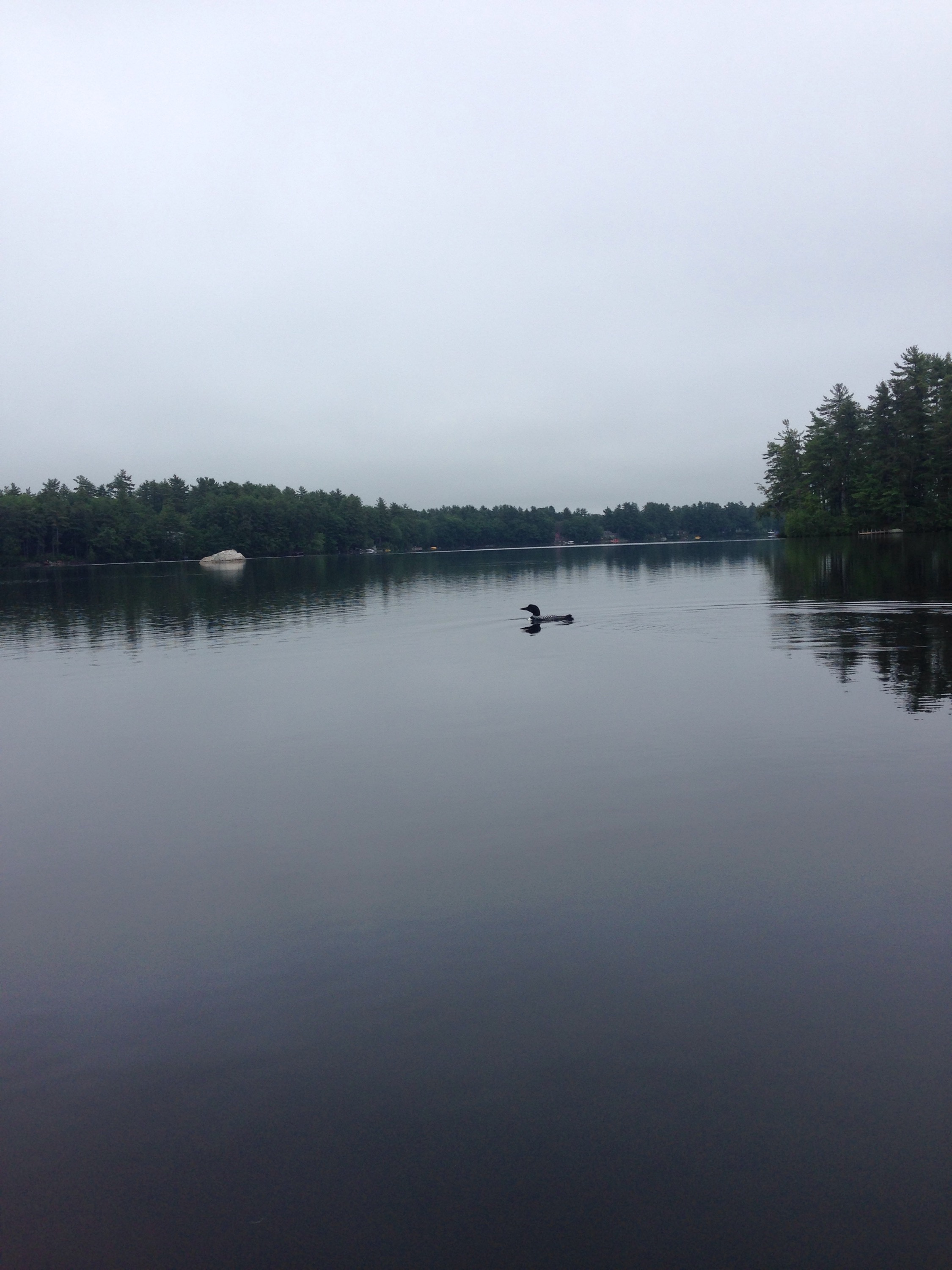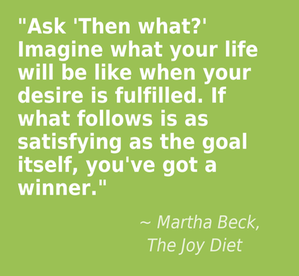
You know how I know it’s a real workout? Because I hurt. ALL. OVER. (That’s not true, my calves and forearms are fine. Actually my toes and ankles and knees are good too.)
Seriously, though, I had heard that paddleboarding was a good workout for your core, but was a bit skeptical. Yes, you’re balancing, and you’re switching the paddle from side to side, but for the casual user, was it really doing much?
The best way to find out was to switch from casual paddleboarder into go mode. I had a morning free on the lake (we’re renting up in Maine for a while to be near family) so I took my Dad’s paddleboard out for a 90 minute paddle down the entire length of the lake and back.
I knew it was further than I should really have gone on my second paddleboard outing of the summer, but that’s the beauty of the out-and-back, right? You decide to go to the beautiful island, and then to the rock, and then sit and watch the loons for a few minutes, and then you’re close enough that you can’t resist making it to the opposite side of the lake, and then…
YOU HAVE TO GO ALL THE WAY BACK.
The wind, inevitably, is now blowing into your face.
One benefit of running is that when you stop, you net zero. Stop paddling on a board or kayak and you could lose all your ground.
I was at no point experiencing any pain or concern, but suffice it to say that if I could have paddled out 45 minutes and back for 15, I would have felt better the next morning.
I couldn’t run today, because my quads hurt so much, and if I turn sideways fast I can feel every abdominal muscle I have.
This is great news. I have confirmation that something I truly love doing, and would do for hours given the chance, is working major muscle groups and giving me a decent workout.
The best kind of exercise is the kind you’ll do. (The best kind of vegetables are… you got it.)

The only sad part of the whole thing was spotting a dead fish in the lake. I wish I knew why it had died. Did someone get it on their hook, and throw it back too injured to survive? Was it the phosphates in the dishwashing detergent someone used to clean their coffee cups at their vacation home? Maybe the sunscreen we wear into the lake that leaves an oil film as we dip beneath the water’s surface. Could have been old age.
We are too far removed from the consequences of our actions, and it makes it both harder to change and hard to know what to change. If I knew something I did today had killed that little fish, I would try to find a solution that would keep it swimming through the rocks, and still leave me with clean dishes and no sunburn.
If the factories were polluting the air and rivers here instead of China, would we be more likely to pick up items at my grandmother’s famous church rummage sale instead of ordering them on amazon prime? If we knew people working as day laborers pollinating flowers because the bees are dying out, would we buy different almonds, or use different chemicals on our lawns?
It’s so hard to remember, so convenient and easy to forget. I buy many new things when reusing would do. I am awesome at bringing my reusable water bottles everywhere, and we only eat plants, but let’s be honest, I buy a lot of maca powder goji berry chia whatever shipped to me from across the world in plastic. I could probably get all those nutrients and antioxidants much closer to home.
Every choice we make is an opportunity to make a little difference, a change somewhere. We won’t ever know or see the direct results, but we should feel good whenever we choose more carefully, because one less bottle in our ocean does make a difference. We’re all pretty small, but we count, don’t we?







